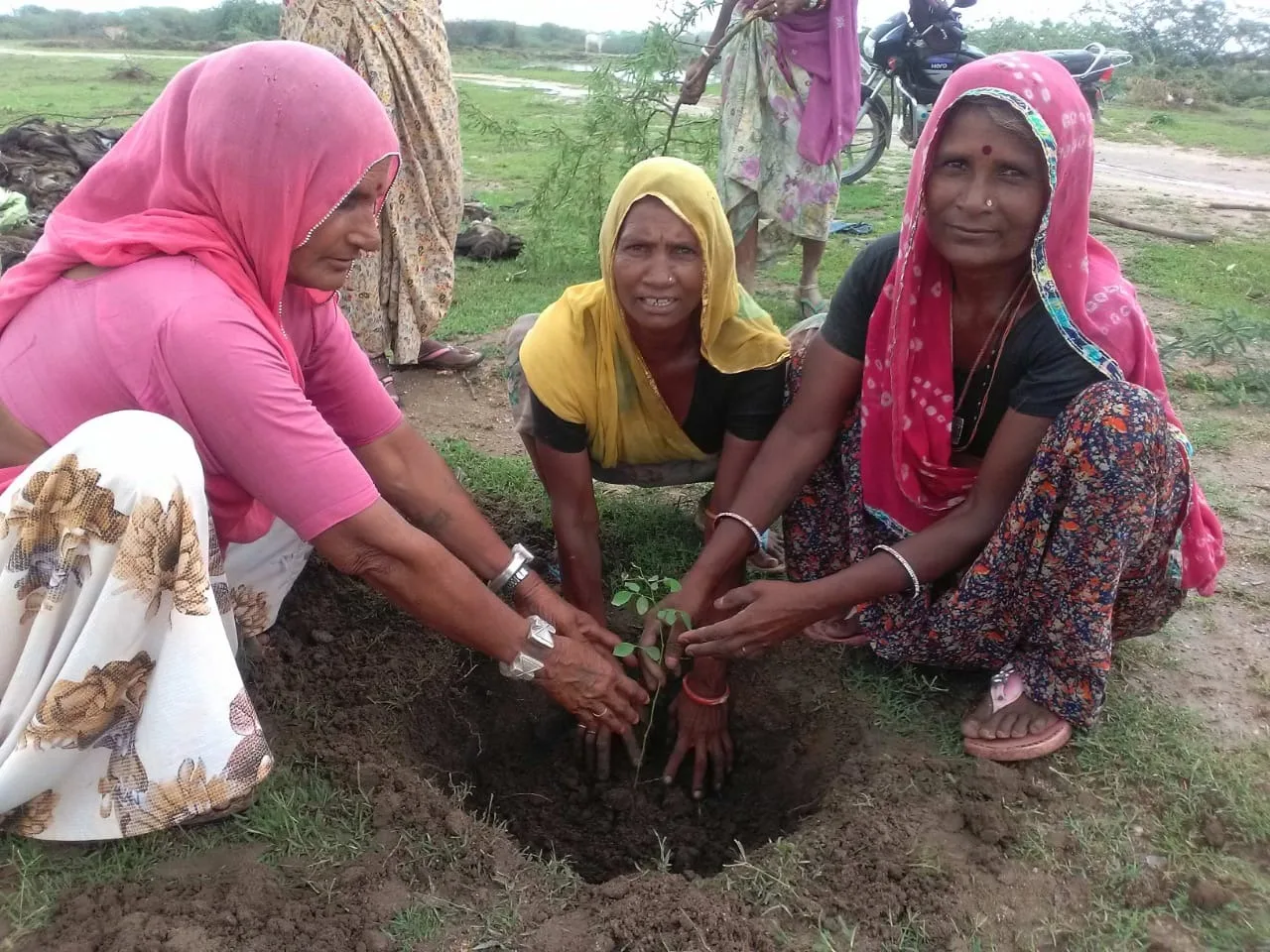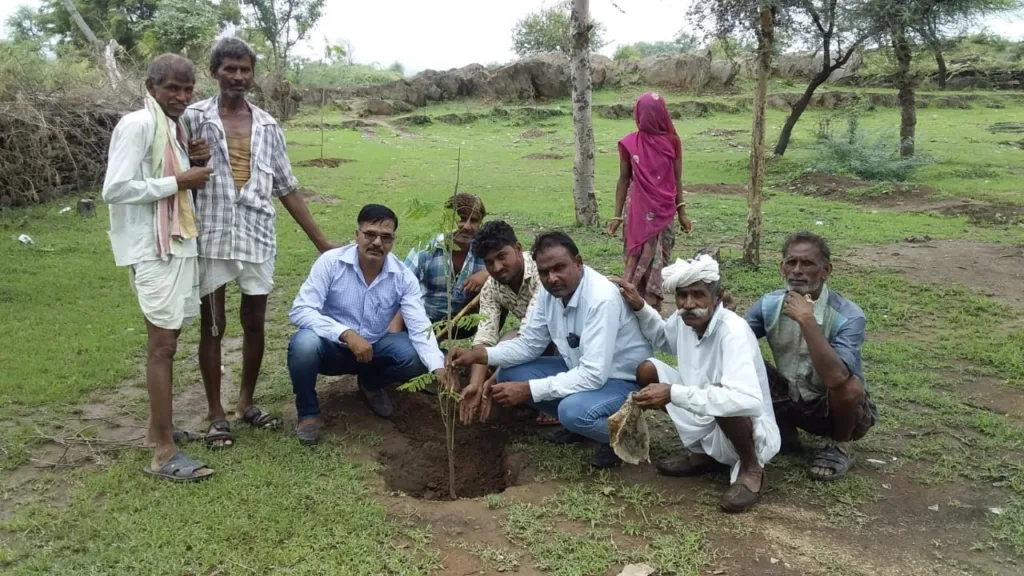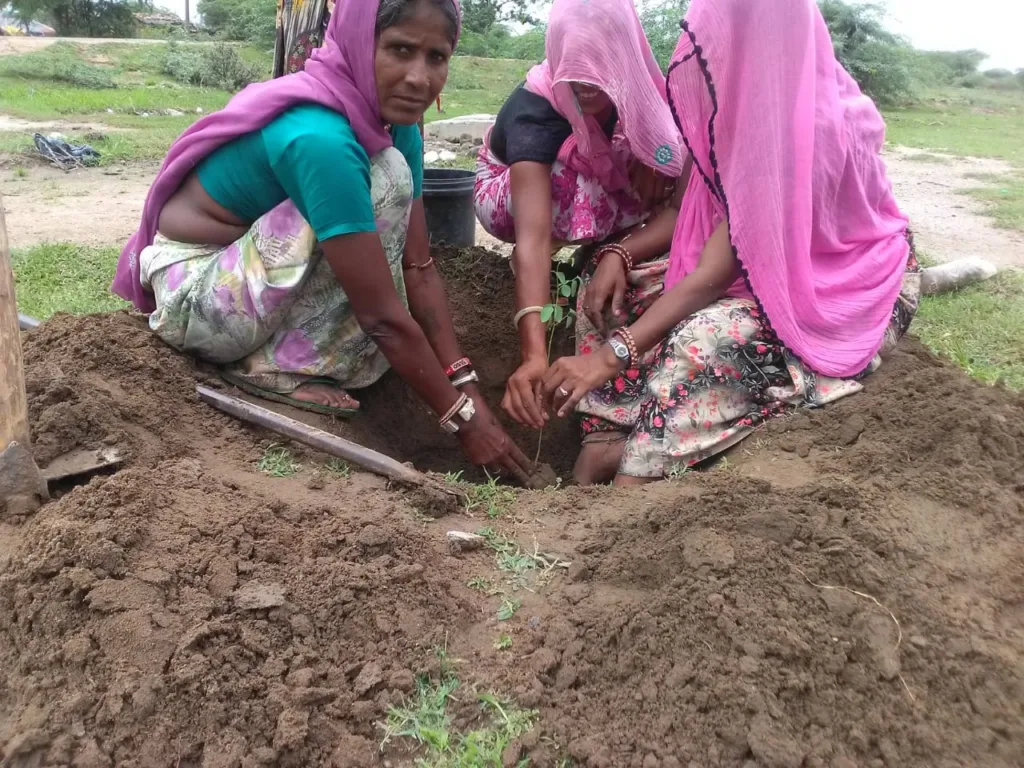
As part of the ‘Trees for Water’ initiative by Grow-Trees.com, a total of 2,55,000 saplings have been planted in and around Rajasthan’s Bhilwara district
Being the desert state of India, Rajasthan consistently grapples with civic issues and the potable water crisis. An estimated 19 districts in the state are affected by drought, with Bhilwara being one of the most severely impacted.
Recognizing the crucial role that trees play in addressing the significant water crisis prevailing in the area, Grow-Trees.com, the organization at the forefront of reforestation efforts in India, initiated the ‘Trees for Water’ project. Launched four years ago, the project has now been completed, resulting in the planting of 255,000 trees across various locations in eight villages in Bhilwara. The covered areas include Nahargarh, Suras, Mehta Ji Ka Kheda, Chansen, Kathano ka Badiya, Kidmal, Kanti, Meno Ka Kheda, Biletha, Mediyan, Jhalra, Goga ka Khera, Itunda, Baroda, Pipliya, Ker ka Kheda, Neelwa, Gorana, Mataji ka Khera, Ragunathpura, Gopalpura, Khakhunda, Shyamgarh, Mala ka Khera, and Gulgav in Bhilwara.

“The villages selected for the plantation activity were grappling with severe water scarcity. Planting trees in this drought-prone region is anticipated to enhance the water table. The trees will retain water through their roots, preventing it from percolating too deeply into the soil and reducing evaporation. The selected saplings for the project are local species that are tolerant to drought and on maturity, the trees with their deep taproots, will utilize capillary water from deeper layers and, through transpiration, help maintain atmospheric moisture, ultimately contributing to rainfall,” says Pradip Shah, the Founder-Director of Grow-Trees.com.

The saplings being planted as part of the project include a variety of species, such as Neem (Azadirachta indica), Shisham (Dalbergia sissoo), Babool (Acacia nilotica), Kumtha (Acacia senegal), Kher (Acacia catechu), Chural (Holoptelea integrifolia), Karanj (Pongamia pinnata), Jangle jalebi/Kekar (Pithecellobium dulce), Imli (Tamarindus indica), Ber (Ziziphus mauritiana), and Ronj (Acacia lecophloea). Upon maturity, each tree will absorb approximately 20 kg of CO2 per year.
“We also ensure that the new saplings and the rural communities involved in their plantation are well cared for. The maintenance activities, even after the completion of a project, will generate stable employment, and communities will continue to benefit from them long after the project’s completion,” concluded Mr. Shah.

